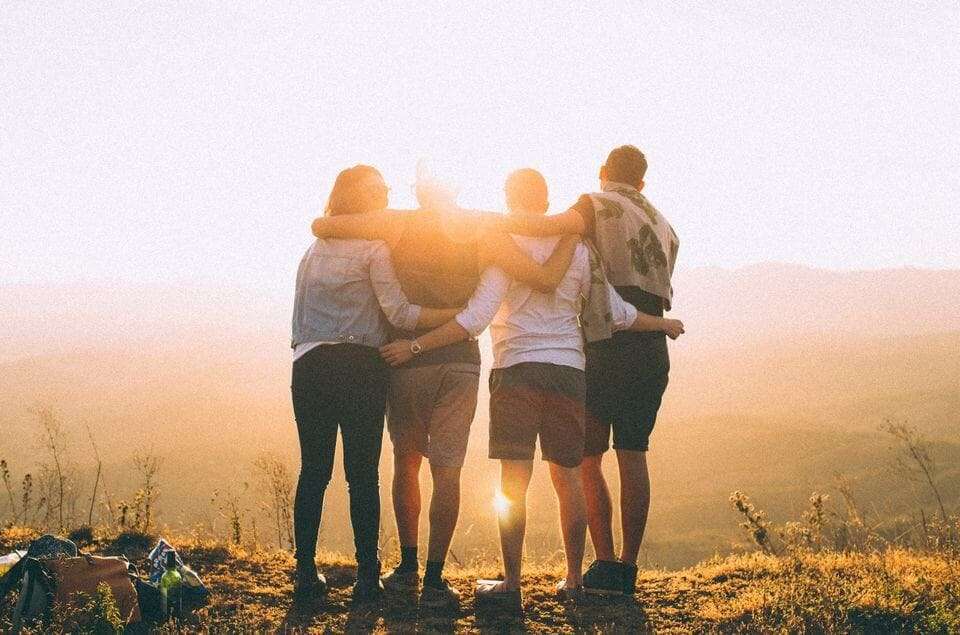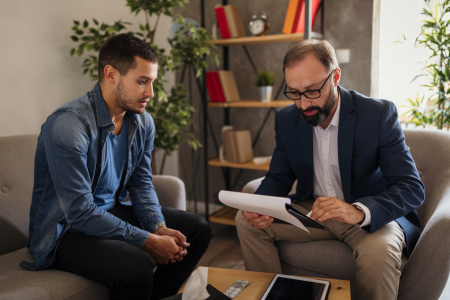We humans are a social species. It is in our nature to bond with others. Our desire to form lasting relationships not only gave us an advantage in evolution, but has also helped society progress to where we are today. In times of need, it is natural to want to reach out for friendship or love, and no one feels that need more than someone in recovery. But some of the common symptoms of addiction – such as lying, manipulating, stealing – make it difficult to have or sustain meaningful relationships with people. Rebuilding, or beginning new, healthy relationships is a key part of recovery.
Rehab Costs & Options for Alcohol | Drugs | Other addictions
Relationships can be highly beneficial to our well-being, if they’re healthy. However, they can also cause harm if they’re toxic. Unfortunately, in recovery, a person is likely to be in a vulnerable state, and may find it hard to distinguish a good relationship from a bad one.
Building relationships is important, but one needs to be careful how to go about doing so. A toxic relationship can sabotage recovery and even lead to relapse. This is why learning how to create healthy relationships is very important, especially in early recovery.
Why are Unhealthy Relationships Common for People in Recovery?
People in addiction treatment are likely to have been in an unhealthy relationship before. The chaos of addiction leads to poor judgment and impulsive behaviour, both of which contribute to the forming of connections which are unsuitable. Such relationships may be what led to their addiction in the first place. If a person is used to having unhealthy relationships, they may not know what a healthy one is like.
Someone coming into recovery is also feeling more vulnerable than ever. If they lack proper support, they may, sooner or later, feel desperate to have some human connection, and cling to anything. Because of this, a person needs to rebuild their self-esteem and identity before jumping into a new relationship. This can take some time.
Think of addiction treatment as a crash course in living sober. You learn a lot in rehab, but you can’t learn everything. For this reason, continuing care after treatment is emphasised, as more life skills still need to be learnt. Furthermore, it takes time for new skills and behaviours to become habits which is why the first few weeks after rehab are crucial.
Why are Relationships Linked to Relapse?
There are a number of reasons that it can be difficult to maintain old friendships, which may lead to relapse. It is likely that some, or even many, of your old relationships are founded on the source of your addiction. Perhaps you have a number of drinking buddies, and you can’t hang out with them without being triggered. Or maybe your old friends have seen you go through the rehab-recovery cycle before, and don’t believe that this one will stick. Perhaps you have pushed away all the people who really wanted to help you, so the relationships you have left are unhealthy in some way. Negativity and doubt will bring you down, and threaten your chance of a successful recovery.
Most addiction professionals recommend avoiding romantic relationships for one year after treatment. There are many reasons for this, and they can apply to normal relationships as well. Forming a healthy relationship in recovery requires work. It takes time and effort to build a bond and create trust. Unfortunately, that means taking time away from self-care. In early recovery, it is crucial to focus on getting better. For example, you may be tempted to miss a support group meeting in favour of socialising with your friends.
“Recovery is about finding your own strength”
In addition, relationships often come with added stress. There is no relationship without arguments or conflict of some kind. Stress can be a trigger and lead to relapse. This is even more true if the relationship is dysfunctional.
If a person is hiding their addiction, or other secrets from their past, it can add extra strain to a relationship. It is not unusual for someone afraid of stigma to do so, especially when making new friends.
Lastly, codependency, which is easy to fall into during recovery, can lead to an unhealthy relationship and, ultimately, to relapse. For example, a person whose recovery is fragile may be attracted to a strong-seeming person because, perhaps subconsciously, they see their partner’s strength as something that they can lean on. But recovery is about finding your own strength and taking responsibility for yourself, not relying on someone else.
6 Tips to Build Healthy Relationships in Recovery
A healthy relationship can be highly beneficial in recovery. It can be a source of support, motivation, and accountability. Before starting any relationship, romantic or not, one should learn how to create a healthy one and how to recognise a toxic one. Here are some suggestions that can help prepare you for newfound friendships, or rekindle old relationships of the right kind:
-
Build a Relationship With Yourself
Before you learn to love someone else, learn to love yourself first. As someone in recovery, you need to prioritise your well-being. This means establishing an identity, improving your self-esteem, and gaining control of your life. If you do not respect yourself, you cannot expect to have a relationship where the other party will respect you.
People in active addiction sometimes befriend someone much worse in some way than themselves, simply because it makes them feel superior. That has to be reversed. A healthy relationship is when two people enjoy each other as equals, rather than looking to one another to change how they feel.
-
Set Your Boundaries
Knowing that you come first, create some rules, both for yourself and those around you. This should be done before you dive into a relationship. For example, you can make a promise to yourself never to miss a meeting for a social gathering. Or, you will not attend any event with alcohol or drugs. Or, you will walk away if a person is showing toxic signs. Write these down to remind yourself, and stick to them no matter what.
-
Picture Your Perfect Relationship
You have to figure out what you’re looking for before you go out and search for it. It is a good idea to sit down and identity what you want and what you don’t want in a friendship. For example, you may want someone that doesn’t break promises, is loyal to their friends and family, is not controlling, and doesn’t use drugs. Understanding your personal values will help you find the right social circle.
-
Look Out for Key Traits
In addition to your personal values, there are signs you can look for that signal a healthy relationship. These include:
- Clear Communication
- Mutual Trust
- Safety
- Respect
For any relationship to function, there needs to be an open line of communication between the parties. This involves both trust and respect. You have to be able to talk to one another as equals. For example, if something they are doing is triggering you, you should be able to tell them that. In return, they should respect you and respond accordingly. No “friend” is a friend if they put you in harms way.
-
Open Up
A healthy relationship is built on trust, so it is recommended that you open up about your recovery in the beginning. You don’t have to give all the details, but things will run smoother if people know you shouldn’t be around alcohol or drugs. Although there is always the risk of stigma, most people will respect you for your honesty. After all, you’re in recovery now, that’s something to be proud of!
-
Rebuild Trust
If you’re looking to rebuild old relationships with friends or family, you may encounter some bitterness, especially if you harmed them in any way while you were using. In this case, it is important to proceed carefully and only try to make amends where it is possible, without causing more offence. If you cannot fix your mistakes, you should show your willingness to be a better person via indirect means. While rebuilding trust is not always possible, the process of doing so will be good for your self-esteem and recovery.
How to Avoid Unhealthy Relationships in Recovery
Learning to avoid unhealthy relationships is important, and will help you build more healthy ones over time. In addition to setting your boundaries, it is important to learn additional signs of a toxic relationship, so you know when to walk away.
Look Into the Past
You should take time to analyse the rights and wrongs of your past relationships (especially if they did you harm), so that you avoid making the same mistakes again. Note what was good about them and what was bad. In addition, try to figure out at which point things went wrong. You can ask someone you trust or a counsellor to help you out.
For example: Perhaps you were in a physically abusive relationship, which started out well, but then your partner became controlling. Or before they cheated on you, they started with small lies.
Understanding what happened in the past will help you pinpoint these signs in future relationships. If you don’t take that time, you are likely to repeat the same mistakes again.
Watch Out for Signs of Toxicity
There are many common red flags that toxic people exhibit. While nobody is perfect, any of these behaviours should ring alarm bells, and if repeated, it may be better to walk away. A toxic person may show these signs:
- Lying and/or cheating
- Acting controlling
- Being manipulative
- Neglecting your well-being and putting you in harm’s way
- Enabling your addiction
- Triggering you into bad decisions
- Making you feel bad about yourself (e.g. “jokes” that actually hurt you)
- Refusing to communicate
- Not respecting your boundaries and/or having poor boundaries themselves
Unlike general faults, there is no excuse for exhibiting any of the above. Anyone you meet that acts this way before you cannot have your best interest at heart. Do not compromise with your own boundaries.
Learn to Let Go
Before you start or restart any relationship, you have to be prepared to walk away at the first sign of an unhealthy relationship. Especially if you’re in early recovery, or if the person is showing serious signs of toxicity. Letting go in the beginning will be much easier, so do not make excuses for their behaviour.
Likewise, it may be tempting to get back with old friends when you get out of treatment. However, take the time to examine if they were truly your friends. If they were the same people you used to drink or do drugs with, it may be best to let go. Even if they do not push you back into old habits, just hanging around the same environment can trigger nostalgia that will cause relapse.
You Deserve Respect
While relationships can be beneficial in recovery, they can also do more harm than good. Despite our desire to form friendships, recovery needs to take priority.
Building relationships, especially in recovery, can be difficult and take time. However, that time is not wasted and your new sober self will thank you later. After all, in active addiction, your number one relationship was with your drug of choice, which may have been a long love affair. When you sober up, it can feel like a bereavement so give yourself time to get over it.
No matter what, remember to take care of yourself first and always respect your boundaries. You’ve come a long way in your new sober life – don’t let anyone ruin it.



